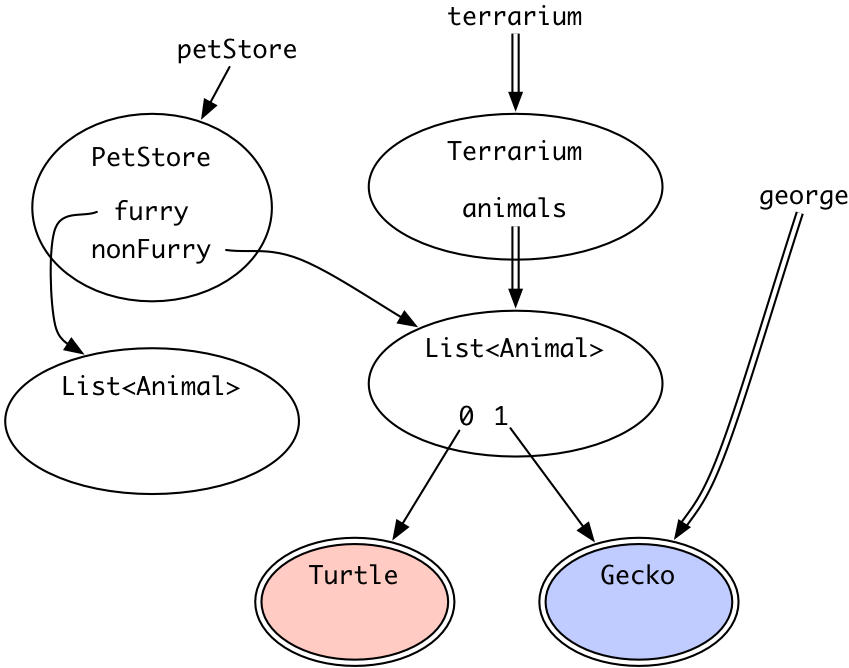Why Are Strings Immutable in Java? Ideal Practices and Usage Situations
Wiki Article
Immutable Strings: A Secret Component in Ensuring Data Uniformity and Dependability
In the realm of data administration, the significance of immutable strings can not be overemphasized. The concept of unalterable strings transcends mere formality; it is a cornerstone in the facility internet of information administration.The Principle of Immutable Strings
Unalterable strings, a basic idea in programming, describe strings that can not be changed when they are developed. Fundamentally, once a string value is designated, any kind of procedure that shows up to customize the string in fact develops a brand-new string. This immutability guarantees data uniformity and integrity in applications, as it avoids unexpected adjustments to the original information.
Benefits in Data Uniformity

Data consistency is crucial in numerous facets of software growth, consisting of database management, multi-threaded atmospheres, and dispersed systems (Why are strings immutable in Java?). Unalterable strings contribute dramatically to achieving this uniformity by stopping information corruption due to simultaneous accessibility. In situations where multiple procedures or threads interact with the exact same data at the same time, unalterable strings work as a safeguard versus race conditions and synchronization problems
Furthermore, the immutability of strings streamlines debugging and testing processes. With immutable strings, designers can trust that when a string is set, it will certainly stay unmodified, making it simpler to trace the source of errors and guaranteeing that examination situations generate consistent outcomes. This dependability in information handling inevitably leads to much more secure and durable applications.

Executing Immutable Strings
Making certain the immutability of strings calls for a thoughtful method to their application in software growth. One crucial approach is to create string classes in a manner that prevents alterations when a string object is created. By making strings immutable, designers can enhance information uniformity and dependability in their applications.To implement immutable strings successfully, developers must favor producing new string items rather than modifying existing ones. This practice makes sure that once a string is assigned a worth, it can not be altered. In addition, any kind of procedure that appears to change the string should create a new string with the preferred changes rather than changing the initial.
Furthermore, utilizing immutable strings can simplify concurrency monitoring in multi-threaded environments. Since unalterable strings can not be changed after development, they can be securely shared among numerous strings without the risk of information corruption.
Role in Dependability Guarantee
In software development, the usage of unalterable strings plays an essential function in guaranteeing the dependability of information procedures. Immutable strings, once created, can not be changed, guaranteeing that the data they represent remains regular throughout the application's implementation. This immutability building gives a level of assurance that the data being processed will not be accidentally transformed, leading to unforeseen end results or mistakes in the system.By including unalterable strings right into software program layout, programmers can enhance the integrity of their applications by minimizing the risks associated with mutable data - Why are strings immutable in Java?. Unalterable strings aid in protecting against information corruption or unexpected adjustments, which can be especially essential when taking care of delicate info or when data integrity is vital
Moreover, using immutable strings simplifies concurrent processing, as numerous strings can securely access and share string information without the danger of one thread modifying the web content while one more reads it. This facet contributes considerably to the overall integrity of the software program system, making sure regular and foreseeable habits in data taking care of procedures.
Applications and System Assimilation
The seamless integration of immutable strings into numerous applications and systems is essential for guaranteeing robust data uniformity and dependability throughout varied technical atmospheres - Why are strings immutable in Java?. Unalterable strings play a critical duty in boosting the stability of information exchanges and interactions within complex software ecosystems. By integrating immutable strings into applications, designers can mitigate the dangers related to information tampering, unauthorized alterations, and unintended modifications, therefore fortifying the general protection stance of the systemIn the context of system combination, unalterable strings function as a foundational element for establishing safe and secure interaction networks and facilitating seamless information transfers in between various components. Their immutable nature makes certain that data transferred between systems remains proven and unchanged, minimizing the likelihood of inconsistencies or errors that might endanger the stability of the whole system. Moreover, immutable strings can boost interoperability in between inconsonant systems by providing a standardized layout for data depiction, making it possible for a lot more effective information handling and exchange procedures throughout interconnected platforms. By adopting immutable strings in applications and system combination processes, companies can strengthen their information framework and support the reliability and uniformity of their details properties.
Conclusion
In conclusion, unalterable strings play an essential role in maintaining information consistency and read this article integrity in different applications and system combinations. By making sure that strings can not be changed when click to read created, the honesty of information is protected, lowering the threat of errors and inconsistencies. Executing immutable strings can significantly improve the integrity of systems, eventually resulting in even more dependable and precise information processing.
Report this wiki page